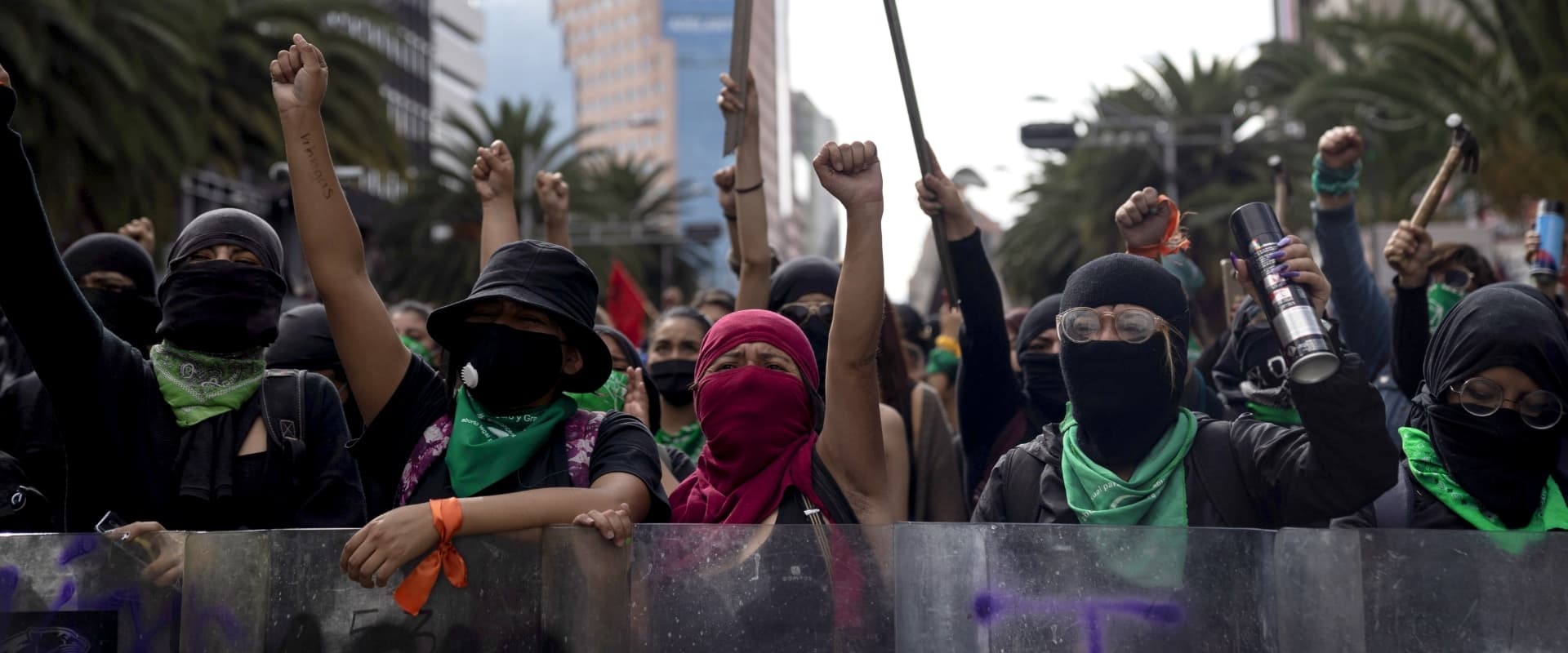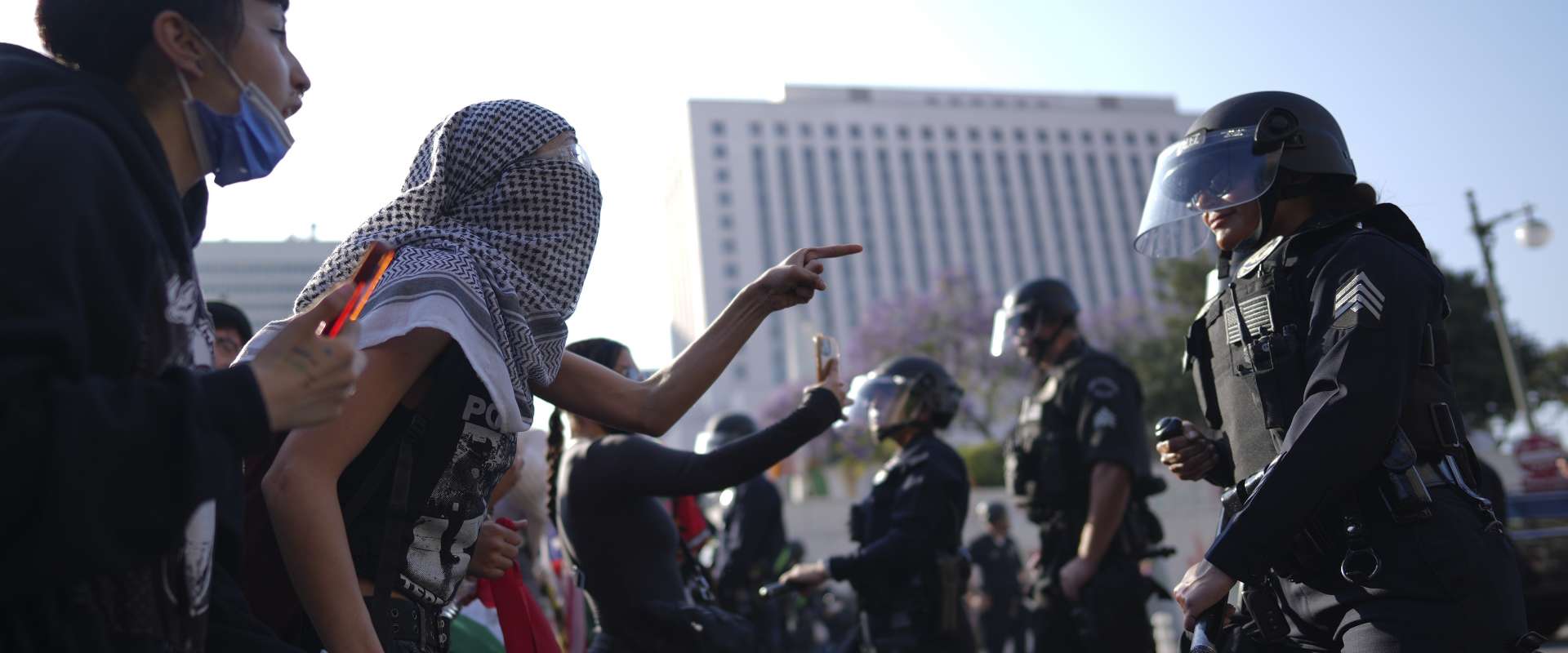On May 2, 2022, a draft opinion of the United States Supreme Court’s Dobbs v. Jackson Women’s Health decision was “accidentally” leaked. As it stands, the decision — concerning a Mississippi law seeking to ban abortions past the 15th week of pregnancy — would effectively overturn Roe v. Wade.
This decision is the culmination of decades of attacks on reproductive autonomy by the right, along with complacency and broken promises by the Democrats. If Roe v. Wade is indeed overturned when the decision is finalized, abortions will be criminalized in 22 states by constitutional amendment. Four other states would likely follow suit either by state constitution or other means. The legal right to an abortion would be lost in over half of U.S. states.
The draft, while confirmed to be authentic by Chief Justice John Roberts, is not final, and the dissenting opinions were not released as part of the leak. The justices still have an opportunity to change their minds as well as the text of the opinion prior to its issuance. But the outlook remains bleak. If Roe v. Wade is overturned, then 50 years of progressive reproductive reforms will be instantly clawed back.
The ruling will harshly and disproportionately impact BIPOC and working-class women, transgender and nonbinary people across the country, producing a shockwave of economic and social ramifications for generations to come. It’s worth noting that when polled, only 30 percent of U.S. citizens support Roe v. Wade’s overturn, and 60 percent support abortion in all circumstances.
A result of false democracy
Sadly, the Supreme Court is not the only undemocratic institution standing in the way of progress in this country. On May 11, the Women’s Health Protection Act failed in the Senate by a 49-51 vote. Senator Joe Manchin from West Virginia was the lone “no” vote from the Democratic Party, and is being blamed by liberals for the bill’s failure. But if this country were a true democracy and 60 percent of the population were in support of abortion, there would be no need for any of this legislative pomp and circumstance. The fact that one senator and nine unelected lifetime appointees can so greatly impact the fate of reproductive rights for everyone exposes the fundamental flaws in U.S. democracy.
Senate Minority Leader Mitch McConnell has even suggested advancing anti-life legislation into law should it become official. But these assaults on freedom and autonomy may not stop at abortion rights. Indeed, the wording of Justice Alito’s decision indicates that interracial marriage, same-sex marriage and even the right to engage in consensual sexual acts may be in danger of being overturned, too.
The dangers of forced birth and illegal abortions
Making abortions illegal does nothing to stop abortions from happening; it only stops safe abortions and reinforces class divisions. Wealthy people will always have access to safe abortions regardless of the law in the U.S.
According to studies, the abortion rate is 37 out of 1,000 pregnancies in countries where abortion is legal, and 34 out of 1,000 in countries where it is not; this is not a statistically significant difference. In the U.S., one in four pregnant people will have an abortion, and many more will rely on abortion as a backup to other forms of contraception. In 60 percent of abortion cases, the patient has already had a child.
There is a common misconception that abortion is a dangerous, painful procedure. This is a backward generalization and belies the dangers of pregnancy. According to the Centers for Disease Control, about 700 pregnant people in the U.S. die every year as a result of high-risk pregnancy or delivery complications, while up to 50,000 have severe complications such as heart attacks or hemorrhages during pregnancy or delivery.
The U.S. has the highest parental delivery mortality rate among developed countries. In 2018, there were 17 paternal delivery related deaths for every 100,000 live births — a ratio more than double that of most other high-income countries.
A recent study says abortions performed in the U.S. are safe and effective, but regulations in many states create barriers to safe care, putting patients at greater risk.
Unsafe abortions are a leading cause of pregnancy-related death, accounting for up to 13.2 percent of pregnant people’s deaths worldwide annually, according to the World Health Organization. Unsafe abortions are predominantly performed in developing countries.
The dangers and hardships of unwanted pregnancy are vastly greater than those of abortion. Both pregnancy and childbirth are traumatic on the body, even in the best of circumstances, and no one should be forced to carry a child or give birth against their will. And in the event a child is born unwanted, so begins an entirely new set of hardships.
Bodily autonomy and economics
Humans engage in sexual intercourse for reasons beyond procreation, and if it results in pregnancy, the pregnant person still has the fundamental right to bodily autonomy by choosing to end that pregnancy.
We often see the attack on abortion rights framed as a debate about morality and religion. The reality is much more about economics. Reproductive autonomy is directly at odds with the roles women have been historically assigned as caregivers in class society. This disproportionately affects BIPOC women. Reproductive labor — required for raising and educating the next generation of workers — has traditionally been performed by unpaid family members, or tasked to undercompensated workers, and traditionally women. The capitalist class does not have to invest in the replenishment of its labor pool, because that has already been taken care of. We are taught that these nurturing roles are inherent to women because of their human nature or biology, but in reality they are gender roles developed through the introduction of classed society and is now reinforced through capitalism.
We often see the attack on abortion rights framed as a debate about morality and religion. The reality is much more about economics. Reproductive autonomy is directly at odds with the roles women have been historically assigned as caregivers in class society.
Because women make up around half of the U.S. workforce, as well as the population at large, they are a force to be reckoned with. Women have the numbers to make demands for better wages, working conditions, childcare, healthcare and many other reforms that could enhance the lives of millions. But they are constantly and violently held in check with regressive laws and customs that are couched in morality but have roots in capitalist accumulation. There may be periods of relative stability, like we have seen for the last 50 years thanks to Roe, but ultimately under capitalism, reproductive rights will never be safe. The only way to achieve lasting equality for all would be under socialism. In the meantime, total reproductive autonomy is an urgent demand for us to make.
The urgency of militant mass action
The complacency shown nationally and in Denver after this leaked decision is very disheartening. Most seem to think the matter must be settled at the ballot box or in the halls of power, not in the streets. Locally, the struggle for reproductive rights has been relegated to well-marshaled parades with police escorts. Militancy and disruption have been actively discouraged by liberal NGOs subordinated to the Democratic Party, and by socialist groups pursuing their own sectarian priorities. There have been few open calls for coalition-building or for the organization of mass actions.
In the struggle that led to the Roe v. Wade decision, during a period of militant feminism in the late 1960s and early ’70s, there were massive levels of civil disobedience in the U.S. Speakouts, interruptions of legislative sessions, and huge demonstrations were able to change the consciousness around abortion rights.
We have yet to gain anything of substance in this country through the ballot box or by asking for permission. It was all gained by blood and sweat through militant struggle and solidarity in the streets and in workplaces.
Colorado may have its own legislation that keeps abortion rights within its borders safe, but this assault serves only to embolden the right. We should demand that abortion be free and accessible to all. This is a fight for the liberation of everyone, not just a privileged few. An injury to one is an injury to all.
We need a militant, grassroots effort that engages the millions who oppose the leaked decision and puts their fury on full display for the entire nation to see. This is a call to action for all organizers and activists, new and old, and for all who stand against the right, the ruling class, and their attacks on reproductive rights. Let us unite in this struggle together!
Our demands
We need to organize a mass movement around the following demands:
1) Federal protections for abortion: We demand a constitutional amendment that codifies free, safe and legal abortion, on demand and easily accessible to people in all states, without any restrictions for low-income people. The level of service must be equitable for everyone.
2) Free, safe, legal, and accessible healthcare on demand, including abortion without apology: Healthcare must be nationalized. Medicare for All does not go far enough.
3) The defense of abortion clinics and the elimination of “crisis pregnancy centers” (fake abortion clinics).
4) LGTBQ+ rights: Queer and trans rights are under siege by the right, too, and their struggle is intersectional with the struggle for reproductive autonomy. We demand total human liberation as we fight side by side!
5) The right to parent: We must fight for everyone who wants to be a parent to have the right and the financial means to do so. This includes subsidies, accessibility, paid medical time off and parental leave, free childcare, and other benefits. We must fight laws that discriminate against poor, working-class and LGBTQ+ parents, as well as single parents who want to adopt or foster children.
6) For Colorado to become an abortion sanctuary state: The State of Colorado must use all means at its disposal to assist anyone seeking access to a safe and legal abortion. This should include state funding for increased abortion access in Colorado and travel expenses for those from outside the state. We must also protect the safety and privacy of abortion asylum-seekers, as well as those who assist them.
7) The mobilization of worker, student, and community organizations: We need rank-and-file committees at every school and workplace. Unions and other organizations should organize walk-outs, speak-outs, sit-ins and strikes. Unions should unite their economic demands with the political demand for abortion rights.
8) Defunding the police, military, prisons, and the border-industrial complex: These funds should be reallocated back into the community toward specific social welfare needs, including nationalized healthcare and the right to parent.
This article was originally published in Westword on June 5, 2022. It is republished here with some light editing.
Photo of abortion rights protest in Mexico City, Mexico, March 2021.



